When my friend Amelia Morris and I decided to start a podcast about motherhood called Mom Rage, my first thought was, “We need to get Meaghan O’Connell on the show!”
O’Connell’s first book, And Now We Have Everything: On Motherhood Before I Was Ready, recounts her accidental pregnancy at age 29, her harrowing birth story, and the angst and anxieties of early motherhood. She writes honestly and with humor about looking at her own body in the mirror soon after returning from the hospital, about her complicated feelings surrounding breastfeeding, and about the time she fled a library story time, unable to connect with the other moms. When she writes, “I couldn’t figure out whether motherhood was showing me how strong I was or how weak. And which one was preferable,” I nod with recognition, and I cheer when she writes, “What if everyone worried less about giving women a bad impression of motherhood?” Meaghan is a brilliant writer. I am so glad she became a mother so that she can convey on the page all the muck of parenting that seems—while it’s actually happening to me—impossible to convey.
As hosts of Mom Rage, Amelia and I start every show sharing our own struggles and frustrations as parents, and we investigate the unfair expectations and assumptions placed on mothers. We then interview a guest: authors, healthcare professionals, and regular parents just trying their best. Meaghan fulfills two of those three categories. We talk to her in episode 4.
After our podcast conversation, which focused on parenting and her expectations for her soon-to-be-born second child, I sent Meaghan some questions via email. These were about the craft of writing a book like hers; they were my way of asking, “How did this masterpiece come to be?” She was kind enough to shed some light on her process.
The Millions: You were penning regular columns on parenting for The Cut before your memoir came out. Were you writing the memoir alongside these essays? I’m curious how the shorter work informed the book, and how writing about parenting related to parenting itself. More to the point: How does writing help you process motherhood?
Meaghan O’Connell: I was. The book came out of the regular freelance writing I was doing and then became its own, separate thing. I would have loved to only write the book but couldn’t afford to do that. So it was a year or two or three of being completely immersed in this subject, for better or worse. At the beginning it was where my brain was anyway, so it was very convenient in a sense. Like being paid to think about what I was already thinking about in the first place.
Web writing became a sort of farm team for my brain. Some of it ended up being adapted into the book; some just led to deeper thinking; some was about getting things out of my system. It was also nice to publish little things along the way, proof of life, getting to feel like I was part of the conversation, etc.
I thought writing a book would be so much more overwhelming than writing a column, but I was surprised by how much safer it felt. Just spending the time on it, in what felt like a secret document. And then the year of editing that went into it! It is overall much less terrifying than writing 1,000 words in two to three days and then seeing it online with a comments section under it. That is a different kind of fun!
Writing helps me process everything. There is a sweet spot for me with essays where I know I have a lot of ideas about something, but they’re only 60-80 percent formed, and getting to that last 20 percent can happen in the writing. Or maybe it’s just 10 percent more and you leave the rest open because certainty is a lie. That’s what’s been funny about doing interviews. If I could easily talk about this stuff in a way that is neat or cogent, I would not have needed to write a book about it.
TM: What was your process for putting this memoir together? Was each chapter considered a discrete section, planned ahead of time as a separate essay, or was it all in your head as an overall arc?
MO: Well, I will start by saying I never thought of it as a memoir! It’s certainly autobiography, and I wouldn’t argue it’s not a memoir, but the m-word has really only come up now that the book is out.
In the writing (and selling) of the book, it was always “essays.” Granted, some chapters (technically the word “chapter” is not in the book either! But I keep falling back to it, so maybe that is a tell) are more essayistic than others, meaning there is more of an attempt to figure something out, with a central question or a central idea, and others are more story-ish.
So to answer your question, there wasn’t an arc. I thought of the book as a series of distinct essays around different ideas or experiences: pregnancy, birth, breastfeeding, sex, gender roles, etc. The list was always changing, and it was never as neat as that. But still.
The structural challenge all along, though, was that the birth is a natural climax. But it couldn’t be at the end. I had a few talks with editors about putting it at the beginning. It wasn’t supposed to matter whether it was chronological. Part of me wanted everything out of order.
But then you write all these words, and I really wanted it to feel like a cohesive BOOK, not just a bunch of essays “packaged” as a book as a career move (you know the sort of book I mean). I wanted it to be its own world. I wanted it to be propulsive. Or I was afraid to want this and resisted it, feeling it beyond me, until I sent the first draft to my editor. I got the sort of feedback that you dread but more so because you know it’s true, that you have work to do, that it’s not quite there yet, etc.
The trick for this particular book was how to have each essay/chapter have a mini-resolution but not enough of one where the book loses momentum. It also took me a long time to figure out how to end it in a way that could carry all the emotional weight that came before but not be false or too tidy or undermining. I think at one point I literally Googled “suspense.” I was semi-resentful initially at having to even think about this stuff—what was I, a fiction writer?—but really, I was just in uncomfortable territory, doing something I didn’t know how to do yet.
Then one day on a walk it came to me as almost a revelation: I could structure the last chapter the same way I did the pregnancy chapter (“Holding Patterns”)—short, numbered sections written in the present tense. This form can feel like a cheat to me, and I think people use it when it isn’t justified, so I hesitated. But when I realized it would solve the bigger problem—of resolution and suspense and so on—I just went for it. It wasn’t as simple as cutting the last few paragraphs of every essay that came before and adding them to this last one, but in many cases that’s exactly what I did. And it still feels like a cheat, but I think it works enough to not matter. I don’t know how else I would have solved the structure of the book.
 TM: What books on motherhood and parenting did you look to as you were writing yours? I certainly felt a spiritual connection to Rachel Cusk’s A Life’s Work, which you quote in the epigraph: “Oh dear, they say. Poor baby. They do not mean me.” I’m curious what other books lit your path, and why they spoke to you.
TM: What books on motherhood and parenting did you look to as you were writing yours? I certainly felt a spiritual connection to Rachel Cusk’s A Life’s Work, which you quote in the epigraph: “Oh dear, they say. Poor baby. They do not mean me.” I’m curious what other books lit your path, and why they spoke to you.
MO: Well, once I started writing mine I actively avoided reading anything too similar, but I read them all already and had the books sort of ringing in my head, spurring me on.
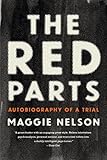 I read all of Rachel Cusk’s other books, for instance. And Maggie Nelson’s. I remember reading a passage in The Red Parts that unlocked something for me—I’m looking through the book now and nothing jumps out, and I don’t even remember what I took away from it. What I remember and miss now, being out of that stage of the writing process, was the feeling of something being unlocked. It was always a little beyond language, just a sense of possibility, a door opening in my brain after I’d been hitting a wall. Despondency giving way to hope.
I read all of Rachel Cusk’s other books, for instance. And Maggie Nelson’s. I remember reading a passage in The Red Parts that unlocked something for me—I’m looking through the book now and nothing jumps out, and I don’t even remember what I took away from it. What I remember and miss now, being out of that stage of the writing process, was the feeling of something being unlocked. It was always a little beyond language, just a sense of possibility, a door opening in my brain after I’d been hitting a wall. Despondency giving way to hope.
 I read a lot of Sylvia Plath, which I guess is funny. Her journals, her poetry. Janet Malcolm’s The Silent Woman, which is a genius book. Then a lot Anne Sexton poetry.
I read a lot of Sylvia Plath, which I guess is funny. Her journals, her poetry. Janet Malcolm’s The Silent Woman, which is a genius book. Then a lot Anne Sexton poetry. 
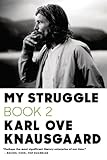 I also read Knausgaard. Book 5 and then reread Book 2.
I also read Knausgaard. Book 5 and then reread Book 2.
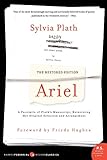 I mean if Sylvia Plath can write Ariel and if Knausgaard can write My Struggle…
I mean if Sylvia Plath can write Ariel and if Knausgaard can write My Struggle…
As a person, I am self-conscious and shy and I second-guess myself, but as a writer I am trying to break out of that, to be unabashed and unapologetic (about being abashed and apologetic) in a way I wish I could be in life. I think I turned to writers who really know how to wield and twist the knife, to remind myself that in this realm, I can be that way, too.
TM: It feels like we’ve gotten some terrific mother-centric literature in the past few years. Moms are really enjoying some cultural relevance right now! Any hypotheses of why that is?
 MO: I could answer this a dozen different ways and none would be the full picture. But from a publishing perspective—maybe the least interesting but most straightforward way to look at this? My theory is that there were a few breakout hits three to five years ago and we are currently in the next wave of that.
MO: I could answer this a dozen different ways and none would be the full picture. But from a publishing perspective—maybe the least interesting but most straightforward way to look at this? My theory is that there were a few breakout hits three to five years ago and we are currently in the next wave of that. 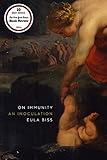 Of bigger houses acquiring books that might have seemed like more of a risk before Graywolf published The Argonauts (2015) and On Immunity (2014), for instance. A book of personal essays by an unknown entity about something “ordinary” is a hard sell in publishing, but it’s maybe easier than it’s ever been?
Of bigger houses acquiring books that might have seemed like more of a risk before Graywolf published The Argonauts (2015) and On Immunity (2014), for instance. A book of personal essays by an unknown entity about something “ordinary” is a hard sell in publishing, but it’s maybe easier than it’s ever been?  Again, look to 2014: Graywolf published the breakout Empathy Exams and Harper Perennial published Bad Feminist—
Again, look to 2014: Graywolf published the breakout Empathy Exams and Harper Perennial published Bad Feminist—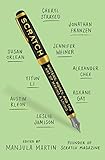 in an interview for Scratch, Roxane Gay said her advance for that book was $15,000.
in an interview for Scratch, Roxane Gay said her advance for that book was $15,000.
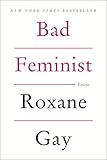
 I also remember the rave New York Times review for Elisa Albert’s After Birth, written by the inimitable Merritt Tierce, as a particular MOMENT. That was March 2015.
I also remember the rave New York Times review for Elisa Albert’s After Birth, written by the inimitable Merritt Tierce, as a particular MOMENT. That was March 2015.
2014 was the year I had my son. So all of this was happening as I started writing my own book. Whether writing about this stuff was respectable, or intellectual, or ART, felt like less of a question than it had ever been. I imagine other writers had the same experience.
TM: Because this is The Millions, I must ask: What’s the last great book you read?
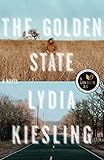 MO: Well, this being The Millions, I have a very relevant answer: Lydia Kiesling’s forthcoming novel, The Golden State. I love the voice and prose style so much, I could have stayed swimming in it forever. It’s the perfect mix of bleak and funny and angry and desperate and tender. Also motifs such as string cheese, cigarettes, small-town restaurants, road trips, work emails—I JUST LOVED IT.
MO: Well, this being The Millions, I have a very relevant answer: Lydia Kiesling’s forthcoming novel, The Golden State. I love the voice and prose style so much, I could have stayed swimming in it forever. It’s the perfect mix of bleak and funny and angry and desperate and tender. Also motifs such as string cheese, cigarettes, small-town restaurants, road trips, work emails—I JUST LOVED IT.
For more about Mom Rage, be sure to access all the episodes here.









